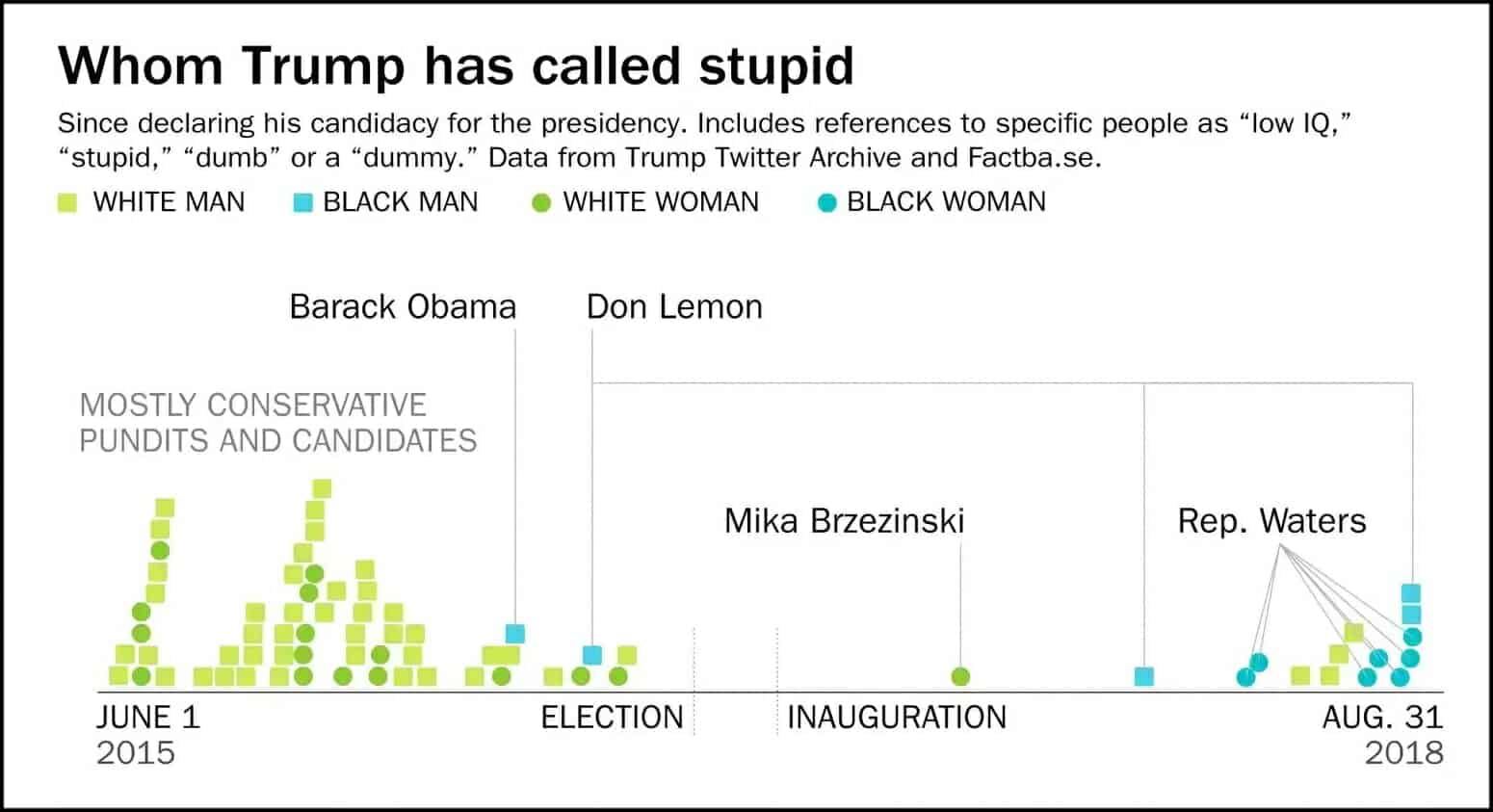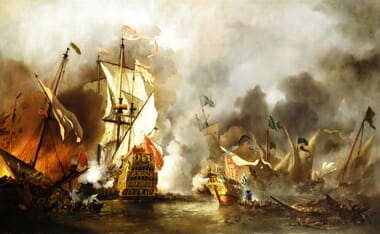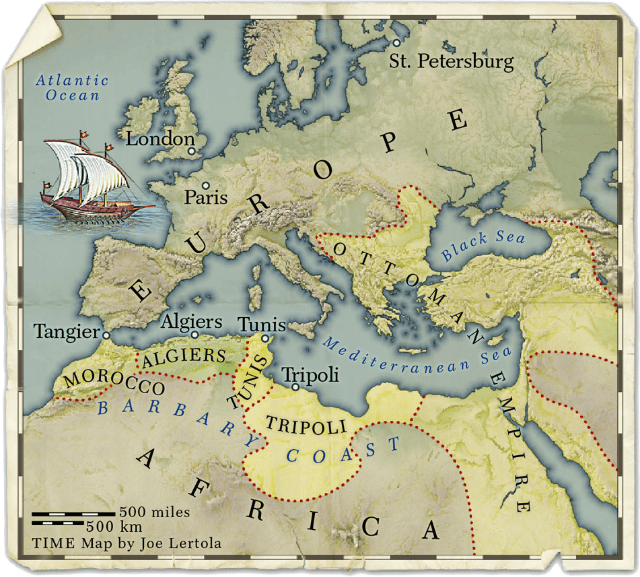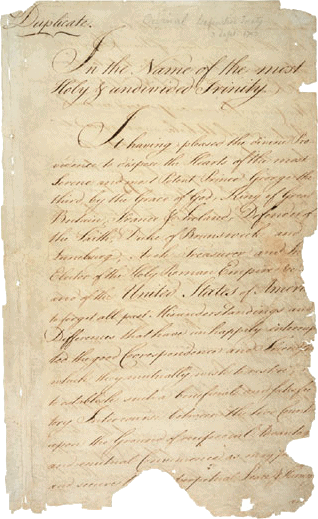Like Hugh Hewitt, I don’t disagree with Das Boot mentioning the attack on John McCain, even if McCain initiated the strain of disagreement. However, I want to deal with two points he made that come from a larger post of mine dealing with the three main media myths about Trump. Das Boot trampled on two of the three I already wrote on. Here are the two issues I refute, which, the conservative should be able to navigate with their adherence to truth. Which is what — I fear — Das Boot is negating in his life of late. POWERLINE calls it his mid-life crisis.
- Max Boot mentions Trump calling Mexicans rapists (at the 2:22 mark)
- Trump mocked a disabled man (at the 2:37 mark)
Is Mexico Sending Rapists?
When I ask people to offer me an example of Trump’s “racism,” I get a reference to this example most often:
- “The U.S. has become a dumping ground for everybody else’s problems…. When Mexico sends its people, they’re not sending their best. They’re not sending you…. They’re sending people that have lots of problems…. They’re bringing drugs. They’re bringing crime. They’re rapists. And some, I assume, are good people.” ~ Donald J. Trump
Before I add information that I doubt a millennial has heard because either they or their friends are quick to label Trump as being bigoted or racist for saying this, and moving on without further reflection, I want to note that all Republican politicians said to round up illegals in America would be an impossible task. Trump has evolved on his statement that many understood as rounding up 11-million (actually, there are 30-million). ALSO, every Republican politician noted that the Constitution would not allow for the banning of all Muslims coming to our country. Again, our Constitution forbids this. It allows for banning all persons from a country, but not a religious or sectarian belief. He [Trump] has backed away from this as well, as all of us knew he would. In fact, this was removed from his site. Trump is not a politician, but his team is counseling him well.
…Continuing.
Okay. What of Trump’s statement? It surely sounds bigoted at best.
I will shock the reader.
I think that is the most pro-woman statement in a long time by a politician regarding real — violent — crime against women.
Let me explain.
This is from the HUFFINGTON POST:
As the number of Central American women and girls crossing into the U.S. continues to spike, so is the staggering amount of sexual violence waged against these migrants who are in search of a better life.
According to a stunning Fusion investigation, 80 percent of women and girls crossing into the U.S. by way of Mexico are raped during their journey. That’s up from a previous estimate of 60 percent, according to an Amnesty International report…
[….]
Through May, the number of unaccompanied girls younger than 18 caught at the US-Mexico border increased by 77 percent.
But while many of these girls are fleeing their homes because of fears of being sexually assaulted, according to the UNHCR, they are still meeting that same fate on their journey to freedom…
For clarity in the sources for the HUFFPO article, for those that are of the impatient and research non-oriented generation:
✦ 60% Amnesty International Report (PDF)
✦ 80% Is rape the price to pay for migrant women chasing the American Dream? (FUSION)
(UPDATED EDITORIAL BY RPT) To be clear, these rapes are happening by residents who live in towns and districts these migrants are passing through. Other rapes are happening by Coyotajes, as well as many by the men making the trip as well. We know that many Honduren gang-members make the trek, and so, a high percentage of these men (criminals) do in fact cross our border into our nation. Where American women of all ethnic background are subjected to assault. Since we know illegals commit crimes at double the rate of native-born… rape is also part of these increased stats.
NEW STORY
80% of C. American Illegals Raped on Trip to US, Still Dems Encourage Them to Come
…“According to a stunning Fusion investigation, 80 percent of women and girls crossing into the U.S. by way of Mexico are raped during their journey. That’s up from a previous estimate of 60 percent, according to an Amnesty International report,” the well-known news outlet continued….
So, many of the men they travel with are rapping them. Many of the Coyotajes as well take advantage of them. There are what are now being called “rape trees,” which you can learn more about on a previous post of mine, here. Here is how a conversation using this understanding went in the real world:
- The above exchange was discussed a bit wrong, like Trump, the main idea is lost in the presentation. Gavin McInness made it sound as if the rapes were happening at the border when in actuality they are happening during the entire trip. And the girl thought he meant Coyotes, the real animal. Not Coyotajes. (That was very funny BTW, and why I ended the video like I did.)
What would be the most compassionate step to take? I would say, to control our border. That would help the migrant woman AS WELL AS our own mothers, daughters, and wives. Many from these countries that are experiencing these horrible circumstances are experiencing it because of their government models they have chosen. But this is neither here-nor-there.
The bottom line is that Trump, while not explaining this well at all, was actually making a statement about policy that in the end will protect women. There is this as well dealing with drugs and violence aspect of the comment:
A fresh wave of crime from the infamously violent MS-13 gang in the District of Columbia is being driven by the heavy recruitment of young illegal immigrants.
A surge of minors crossing the U.S. southern border is helping the notorious gang boost their ranks and instigate a new string of violent attacks in the city, reported The Washington Times. Over the past few years a wave of illegal migrant children crossed the U.S. border, and MS-13 appears to be targeting them for recruitment.
“They are certainly susceptible,” Ed Ryan, gang prevention coordinator in Fairfax County, Virginia, told The Washington Times. “They are new, they have very little family, they don’t know the language very well. They are looking for someone who looks like them, talks like them.”
Experts say violence from MS-13, which originally started in California, historically occurs in waves. Currently MS-13, on orders from El Salvador, is ramping up efforts in cities across the U.S. to reestablish their dominance on the streets, reports The Washington Times….
This is just a very short clip of a longer audio (here: ) of John and Ken discussing Mollie Tibbetts and her murderer, Christian Bahena-Rivera. According to the DAILY CALLER, he was employed by a Republican small business owner…
- “He worked on Yarrabee Farms, which is owned by the family of GOP official Craig Lang, who was a former 2018 Republican candidate for state secretary of agriculture, according to reports by the Des Moines Register.”
…who may have illegally had him in their employ? However, he was an example of the DACA young… so did he have his temporary papers? I have no idea. Nor would I know if he immigrated legally if he would have passed all the checks/balances.
As an side…
Is this man a racist or bigot? He was the co-founder of the United Farm Workers union, and spoke out against the racist organization, La Raza, as well as calling workers who crossed the border “illegal immigrants” and “wetbacks.”
…“Cesar Chavez opposed illegal immigration,” Levin said during a Wednesday appearance on Fox News’ Hannity.
After saying that the premise that “compassion is an open border” is a “new idea” that has been pushed in recent times, Levin said that “a nation has a right to secure its border” and its citizens have a right to know who is coming into their country.
Chavez, who was also against ethnic organizations like La Raza, would tell illegal immigrants to get out of the country, especially because they lowered the wages of American workers. And he was often far from compassionate in handling illegal immigrants….
(BREITBART and the HUFFINGTON POST)
Trump Mocks Disabled Reporter ?
This one I believed for a long time. Here is a common way this is added into a litany of grievances:
- If I owned a business and someone applied for the job that had a history of denigrating women, mocking a reporter with a disability, targeting people of a certain ethnic or religious affiliation, I would not hire that person. I am surprised to see that some would. Perhaps we have different values.
Firstly, it is not my job to correct EVERY detail a person brings up. Even I have a life. Barely, but it’s there… somewhere. So the denigrating women thing makes no real difference to the Democrat, because assaults, murder, and rape are all too common on the left. JFK raped a 16-year old girl in the White House and brought prostitutes into the same House. Ted Kennedy, the “Lion of the Senate,” a hero to the Left assaulted women even killing one in a drunken night out. Bill Clinton either raped or assaulted over 15-women and had sex with prostitutes, and his wife got a man she knew was guilty of rapping so violently a 12-year old girl that she could never have kids her entire life. She laughed about getting this rapist off. She [Hillary], also covered up her husbands attacks. She got so much flack for this that she removed from he campaign website a section detailing her hard work to protect women.
Thank you Bernie fans for being tough on her for this!
— But I Digress —
(and have already answered this more here)
My answer to this requires watching a video/audio I worked on and uploaded to my YouTube… but if you want a condensed version that I responded to a person elsewhere on the WWW:
So, what have we learned so far by exchanging ideas in an open forum. Trump was right about the rapists comment, and the best thing to protect women is to control our border (both for the immigrant women and our mothers and daughters).
And the other things we learned is that Trump mocks everyone with the same motions. Childish? Yes. Not ideal for a President. Sure. He wasn’t my 18th choice out of seventeen. But what is said of him is not [often true].
Here is a time-line of each video of Trump mocking various persons (including himself) with the same mannerisms as the media says he expressly used to mock a man’s disability:
The videos used to make the montage are from CATHOLICS 4 TRUMP’S article entitled, “Even MORE Video Evidence Trump Did Not Mock Reporter’s Disability“. Here is the timeline (maroon is before or during the event in question):
✦ May 2005 – Trump imitates a flustered Trump (decade prior to the “event” in question);
✦ October 2015 – Trump imitates flustered bank president (25-days prior to the “event” in question);
✦ November 25, 2015 – Trump imitates flustered reporter and flustered general (during the same speech given as the “event” in question);
✦ February 2016 – Trump imitates flustered Ted Cruz;
✦ October 2016 — Trump imitates a flustered Donna Brazile.
I include this call because it is more concise than my other uploads:
➤ Did Trump Go Full Retard On That Reporter? (Sep 8, 2016)
➤ Larry Elder Slays Fools | Meryl Streep (Jan 10, 2017)
Again, he did this of himself, Ted Cruz, a general, and more. It is his “quirk.” One I hate, but not aimed at anyone in particular to represent a physical condition. (See a much longer report on all this here.)
Here is my “finisher” to a recent discussion via FB on this topic:
No, he was not mocking his disability. He was mocking his reporting. Like he was mocking the general later in that same speech. Unless, wait… Bonnie… you may have something… when Donald J. Trump mocked himself in May 2005, a bank president in October 2015, that general in November 25, 2015, Ted Cruz in February 2016, and Donna Brazile in October 2016…
…h-e was r-e-a-l-l-y mocking that reporter that doesn’t have a disability that causes him to make those motions.













